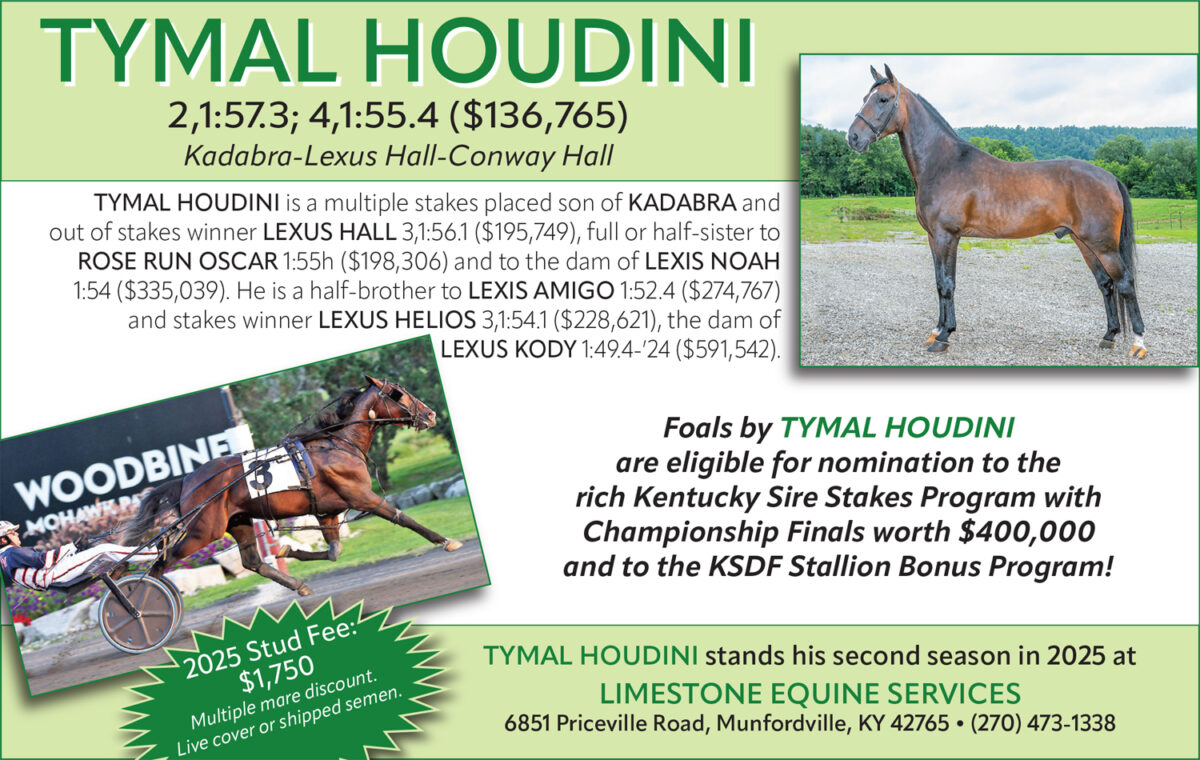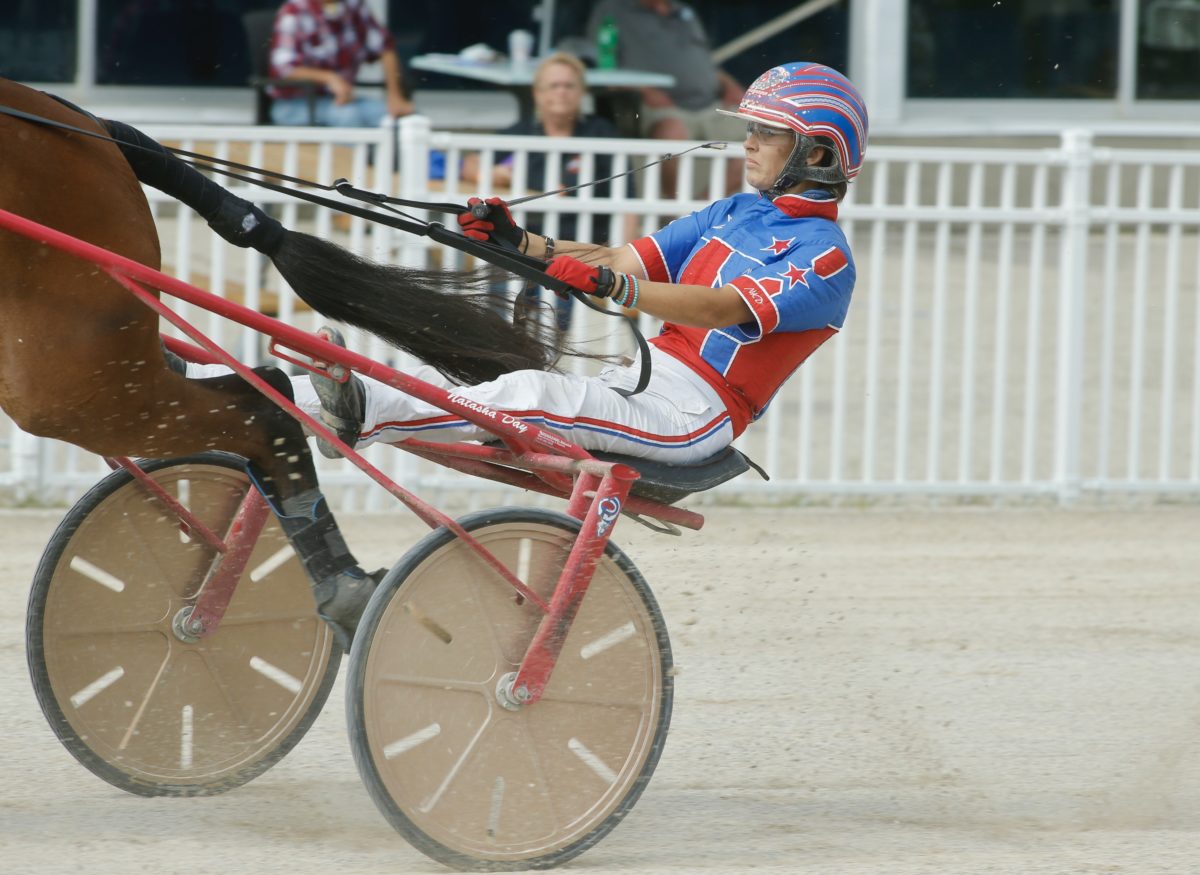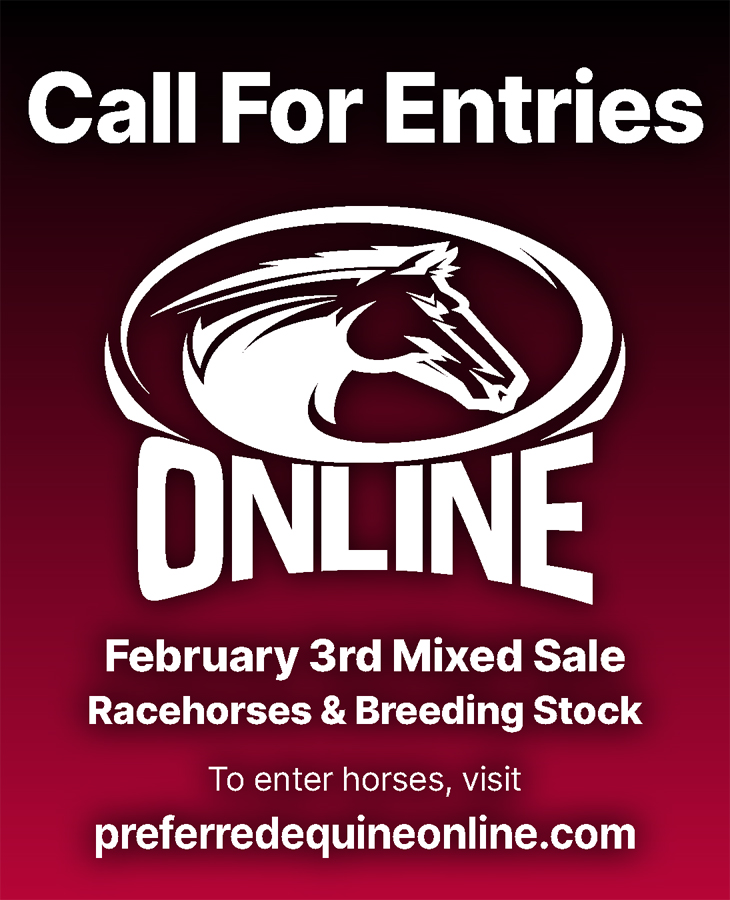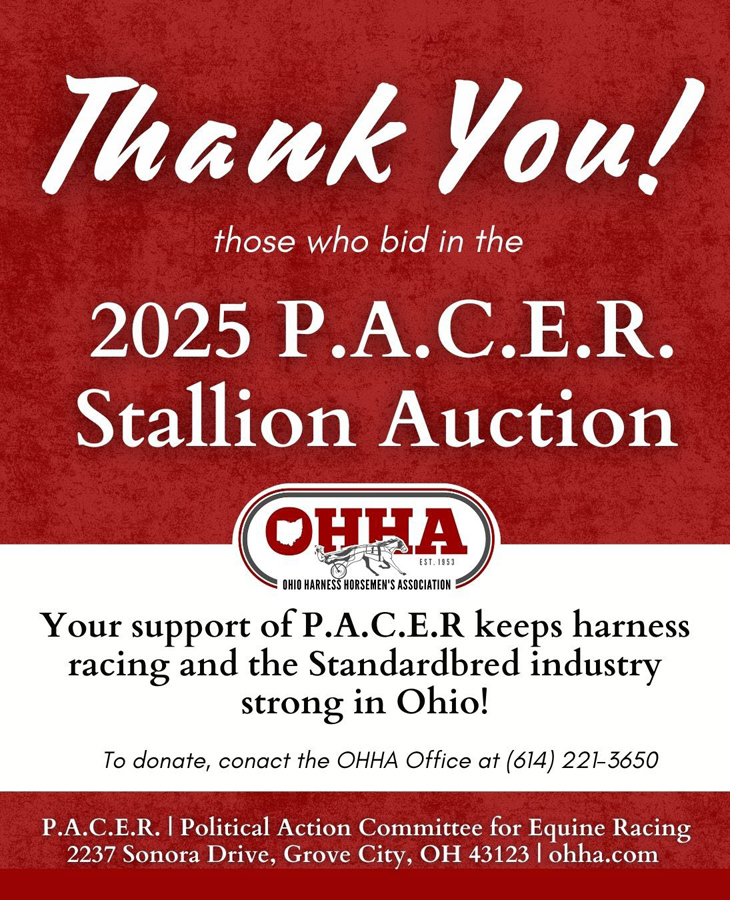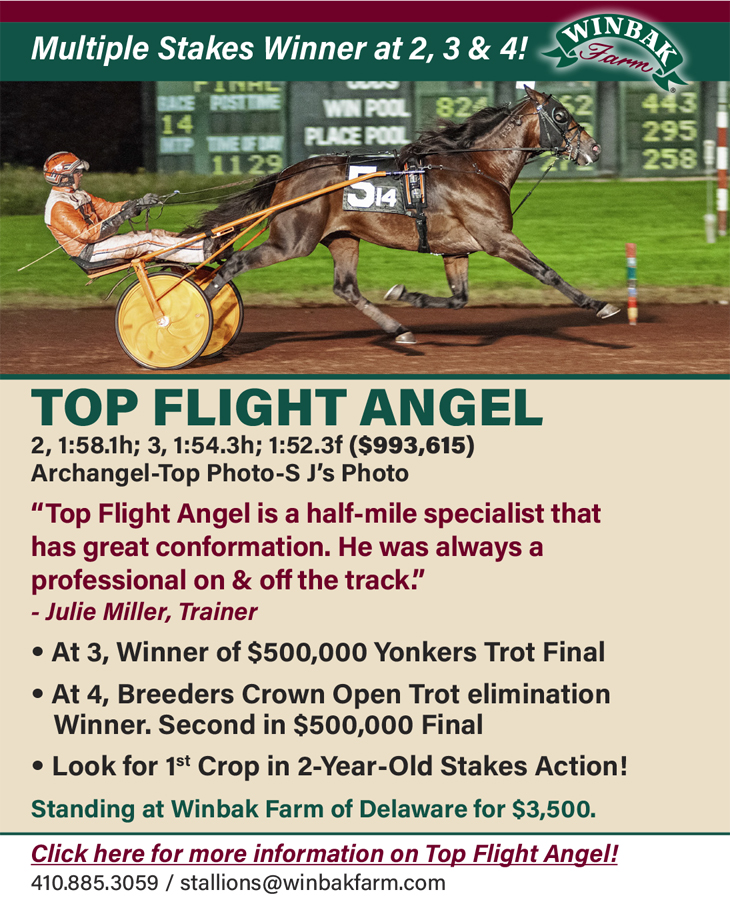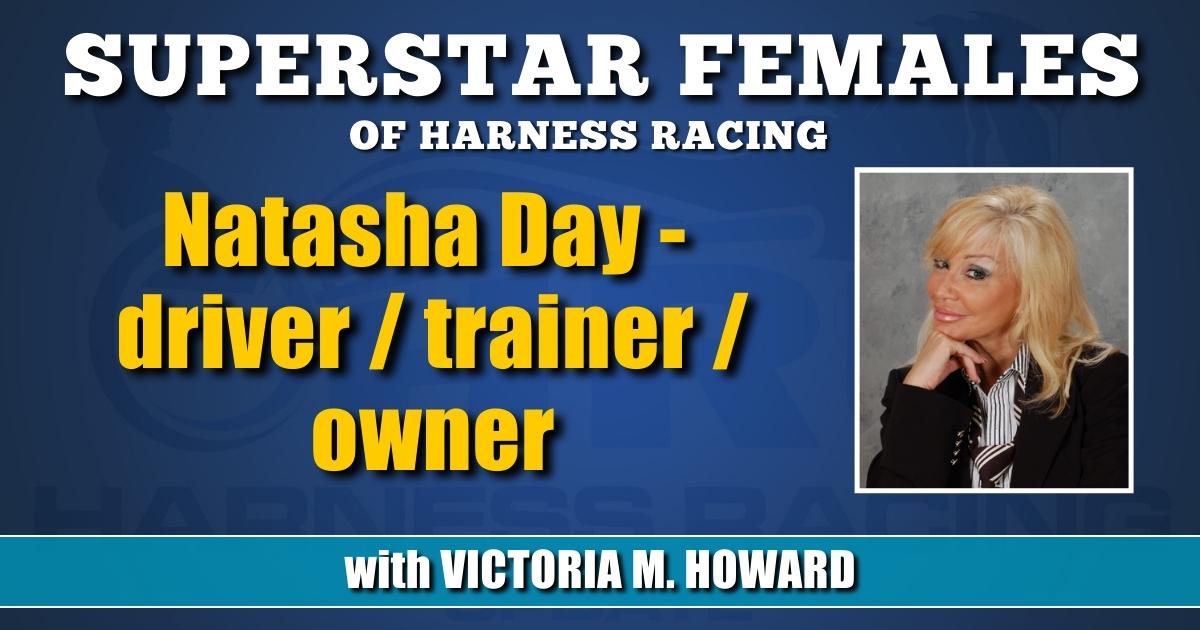
Natasha Day – driver / trainer / owner
by Victoria Howard
Natasha Day has enjoyed living her life from one corner of the earth to the other: Australia to Canada.
“I was born on the Gold Coast, Australia, to parents that were both involved in the sport of harness racing,” Day said. “My father was a trainer/driver, so growing up in the barn I fell in love with the game and the horses.
“When I first came to the States, I got a job with top trainer Ross Croghan. He taught me so much about lameness in horses, plus the experience to work with Grand Circuit and sires stakes horses was invaluable. When I relocated to Canada I worked for top trainer Richard Moreau. This set the path for me to eventually go out on my own as a driver first and then a trainer.”
Although Day currently owns two horses of her own — Sizzlen Hot Herbie and Taylors Credit — she also trains four other horses for her owner, Doug Millard.
When asked if she had a favorite, Day admitted it is Sizzlen Hot Herbie.
“You could say that Herbie ‘set me up,’ for he is the one who bought me everything I needed to get my start in the sport, such as horse trailers, trucks, Christian Louboutin shoes, and he is the proud advocate to saving three standardbreds from kill pens. The shoes were for me of course!”
But, it is not the quantity of horses, but the quality that matters in this game. Besides Herbie, Day credits her pacer, Taylors Credit, for giving her some of the best times and worst angina, and for being the fastest horse she has ever trained.
“Taylor is completely unstable and has tendencies to hit fences, but geez, can he fly,” Day said. “He took a mark of 1:54 at Georgian Downs last month, and has paced in 1:52 at Mohawk this summer.
“On the other hand, Sizzlen Hot Herbie, who is a trotter, holds the key to my heart. When I came to Canada, I had no help from family, no partners to help me, and worked my tail end off to get a little recognition by picking up drives. I would go anywhere and everywhere for a catch drive.”
Day said she is mainly a “pacing” girl, but she loves training and driving trotters.
“I absolutely love training and driving trotters,” she said. “Since I’ve gone on my own, I have had quite the affiliation with trotters. My stable consists of six horses; four of them being trotters. But honestly, it doesn’t matter if it’s a pacer or trotter, when you get a good one, you just know it.
“The feel of a good horse is amazing. It hits you different and pumps you up, getting you excited for the future.”
In her travels, Day has gotten to experience different styles of competition.
“I find that racing in the States on a half-mile track is especially difficult to stop and start,” Day said. “There’s zero flow and zero tactics. If your horse can’t make it to the front — and that seems to be most of the drivers’ tactics — it’s pull out at the half; and if you can last out there, great, but if not, impede the flow. What gets me the most is when you see a horse that hasn’t raced in a while or ever won a race before, pull first over. I find that in Australia we have a lot more tactics. Maybe that’s because most horsemen/horsewomen train and drive their own horses.
“Also, the judges in Australia are much tougher. If they see a horse is being driven differently week in and week out, it’s nothing for them to hand out a four-to-six-week suspension. Kudos to them, for they are looking out for the betting public and the integrity of the sport.”
At one time, Day tried her hand in an extremely difficult, but exciting part of the sport, breeding.
“I tried the breeding game once,” she said. “I owned a broodmare that I bred four times. Three of her foals made it to the races. One was a track record holder who is now retired in Australia, living his life as a champion show horse; and his brother was a Grand Circuit contender who is also retired in Australia.
“When my broodmare lost her last foal, that was the end of breeding for me.”
Day is a dedicated horsewoman who wants nothing more than to continue her career in harness racing.
“My goal is to stay rather small, for I believe the hands of a trainer is very important and the more I can give to a small team, the better,” Day said. “I’ve seen many stables get too big, thus a lot of horses slip through the cracks. It’s a vicious circle, for the bigger the trainer gets and he or she’s not able to give one-on-one to each horse, the owners get frustrated and jump ship to another trainer.
“My plan is one day to have a barn of stake horses. I have a wonderful owner, Doug Millard, who breeds quite a few horses and plans on buying yearlings this year, whether in London, Lexington, or Harrisburg.
“Mr. Millard has a namesake race at Mohawk for 2-year-old trotters, so it would be wonderful to have one of our horses compete in and possibly win. After all, dreams do come true!”




